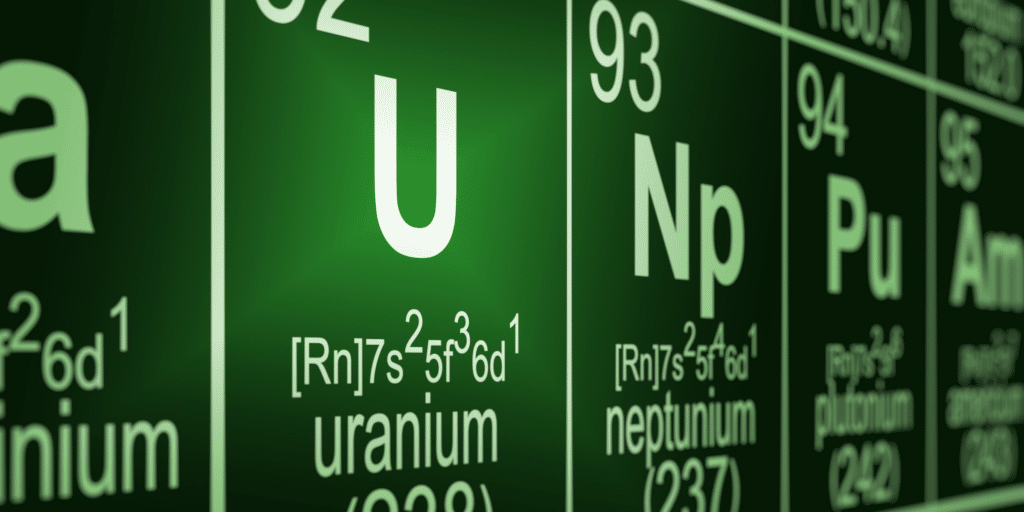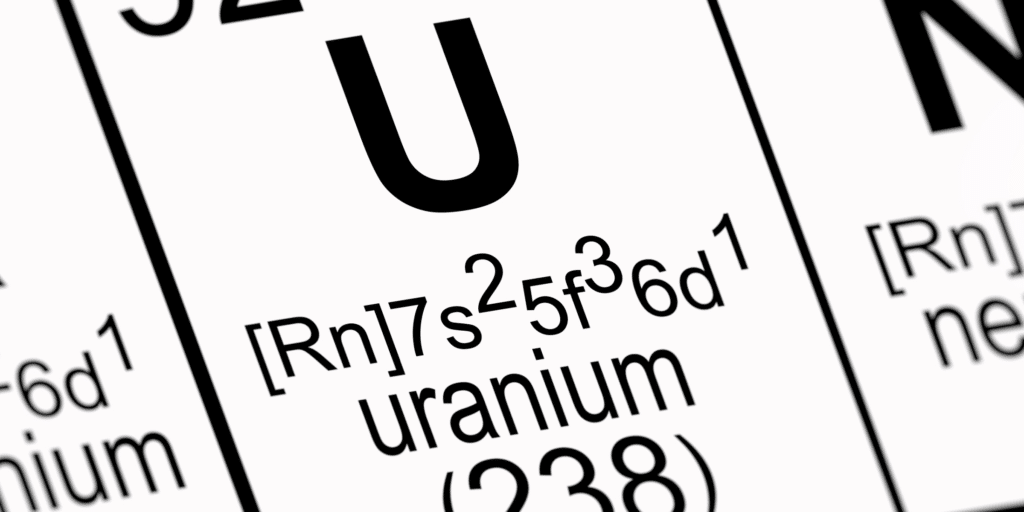
CEBU CITY, Philippines — Uranium is just one of the several natural elements that has radioactive properties.
They are found in trace amounts in rocks, soil, and water.
These radioactive metallic elements are spread throughout continents in the world. In fact, they are commonly found in several countries like Australia, Canada, Kazakhstan, and Russia which have uranium mines.
Meanwhile, here in the Philippines, reports suggested of the discovery of recoverable uranium. However, the country still has no operating uranium mine yet, according to the Philippine Institute of Development Studies (Pids).
READ MORE
Mayor Bercede raises alarm over uranium seizure in Mandaue City
Uranium, over 100 kilos, seized in Mandaue, Pasay, CDO
NBI arrests 3 individuals involved in depleted uranium trade
But recently, authorities were alarmed when they confiscated millions worth of depleted uranium in various areas.
Last October, agents from the National Bureau of Investigation (NBI) started a crackdown against illegal ‘precious metals’ trade. These precious metals later turned out to be depleted uranium being sold to foreigners.
While depleted uranium is known to be less radioactive than normal uranium, the government warned the public that they still pose a threat. Particularly, in terms of national security.
What is Uranium?
Uranium was first discovered in 1789.
In the past, it was used to color glass. Uranium’s decay product, radium, was also utilized in the production of luminous paint and medicine.
Over time, it has found another purpose as a fuel in nuclear reactors and in the production of nuclear weapons.
Depleted Uranium
When stripped of much of its radioactive matter through an “enrichment” process, the now depleted uranium can be placed on the tip of bullets, tank shells, and mortar rounds.
According to the International Atomic Energy Agency, depleted uranium is the by-product of enriching natural uranium to be used in nuclear power reactors.
It is a radioactive material suitable for military use. Hence, it is utilized in making ammunitions used to pierce armor plating and tank armor.
The dense material can penetrate through almost anything, making it an ultimate weapon of war.
This is one of the risks associated with the discovery of over 100 kilograms (kg) of depleted uranium in five separate operations in Pasay City, Cagayan de Oro City, and Mandaue City from October to November 2024.
Raids
Operatives of the National Bureau of Investigation (NBI) caught Roy Cabesas Vistal, his partner Mae Zagala, and his agent Arnel Santiago.
The three individuals are accused of selling the depleted uranium to foreign customers as “precious metals” in the form of rhodium or paladium, which can be sold at P6.8 million pesos per kilo.
Last Oct. 18, operatives searched Vistal’s house in Pasay City and found 3 kg of black powder, rock and small metal materials.
His house was also found to be contaminated with “an undeterminable quantity of depleted uranium powder.”
On the same day, an entrapment operation led to the arrest of his Mae Zagala and Arnel Santiago. Authorities recovered 23 kg more of metal bars and black powder containing uranium.
Investigation showed that the suspects allegedly sourced the depleted uranium in Cebu that led officers to conduct another raid in Mandaue City, Cebu. There, they recovered 60 kg of block metals positive for uranium.
All of the seized items had elevated readings of radiation and were identified to contain depleted uranium isotopes, particularly Uranium 238 and Uranium 235.
The suspects do not possess license to possess, store, trade or sell these items, according to NBI.
They were then charged for violation of Republic Act No. 5207, or the Atomic Energy Regulatory and Liability Act of 1968. Two of them have posted bail.
NBI director Lawyer Jaime Santigao said that an investigation is being conducted, with the help of foreign counterparts Interpol and FBI, on how the radioactive materials entered the Philippines.
National Security
Following this case, NBI and the Philippine Nuclear Research Institute (PNRI) explained that depleted uranium poses a serious threat to national security due to its use in the production of nuclear weapons.
Aside from the health threats it poses due to its radiation and heavy metal toxicity, depleted uranium is dangerous as it can be used for violence as terror organizations are in pursuit of the element to enhance their weaponry.
NBI explained that one of the terror risks of depleted uranium is its possible use in the creation of a “dirty bomb,” a type of radiological dispersal device that combines a conventional explosive with radioactive material.
“The terror risk associated with this material is that it could be made into a dirty bomb. Bilang (As a) dirty bomb, it is the ultimate weapon of terror. Kasi may irrational fear to radiation ang ating publiko (Because the public has an irrational fear towards radiation). And that being said, if it falls to the wrong hands, it could definitely increase the weaponry of non-state actors or terror organizations,” said NBI Agent Zulikha Marie Conales during a press conference on Monday, December 9.
The presence of the depleted uranium, despite it being less radioactive than natural uranium, can still bring anxiety and contamination.
Individuals in close proximity to anything relatively radioactive are still at risk of being exposed to radiation.
Inhalation of radioactive dust or smoke from the bomb could cause several health risks including damage in the kidneys and cancer.
This is why NBI agents, to avoid contamination, were made to wear protective gear and subjected to decontamination procedure after.
Meanwhile, Vistal and his cohorts were subjected to a medical examination to check for radiation poisoning as they have been exposed to the radioactive material for one year.
Conales also said that the PNRI has conducted decontamination procedure at all the areas they operated before they were cleared.
The seized depleted uranium is now stored at facilities of PNRI for proper storage and preservation. Any transport would require the use of a military grade aircraft for safety purposes.
The recent of discovery of an illegal trade of depleted uranium in the country opens up a new problem that has caused the public to be alarmed for their safety.
Authorities, however, assured that they are looking into how the trade began and where the radioactive materials came from to mitigate the risks of this kind of illegal activities. | with reports from INQUIRER.net /mme


